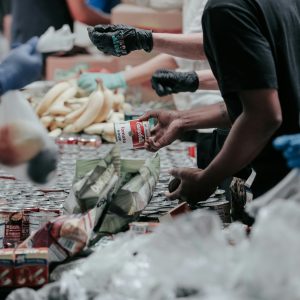Children in northeast Syria camps must be urgently repatriated, say UN experts
GENEVA (AA) – UN experts have called for the urgent repatriation of children from northeast Syria as they enter their fifth year of detention.
They say children in conflict zones must be protected, not punished.
“Many children are now entering their fifth year of detention in north-east Syria since they were detained by the de facto authorities following the fall of Baghouz in early 2019,” said experts.
The experts include the UN Committee on the Rights of the Child and Fionnuala Ní Aolain, UN Special Rapporteur, on protecting and promoting human rights.
They were talking about camps controlled by the YPG/PKK Kurdish nationalist groups.
It is now time to bring them home, they say.
Since 2019, more than 25 countries have repatriated their citizens from Syrian detention camps.
Western countries have, however, been reluctant to bring home their nationals and family members suspected of joining the ISIS in Syria.
56,000 in locked camps
The experts said the two largest locked camps for women, girls and young boys — Al-Hol and Roj — still hold around 56,000 individuals, including 37,000 foreign nationals.
More than half of the camps’ population are children — 80% under the age of 12 and 30% younger than 5.
There are also more than 850 boys deprived of liberty in prisons and other detention and “rehabilitation centers” throughout northeast Syria.
“The mass detention of children in north-east Syria for what their parents may have done is an egregious violation of the Convention on the Rights of the Child,” said an expert.
The convention prohibits discrimination and punishment of children based on their parents’ status, activities, expressed opinions or beliefs.
The children are detained without any legal basis, judicial authorization, review, control, or oversight, violating the rights of the child convention which affirms that no child shall be deprived of liberty unlawfully or arbitrarily.
“Most children have known nothing but conflict and closed camps, where the living conditions amount to cruel, inhuman, or degrading treatment and pose an imminent risk to their lives, physical and mental integrity, and development,” said an expert, and added: “These squalid camps are no place for children to live with dignity,” lacking access to basic needs such as medical treatment, health services, food, water and education.
Deteriorating security
“The security situation is constantly deteriorating. In the last few months, four children, including three young girls, were murdered in the camp, with absolute impunity,” said an expert.
Many imprisoned boys have tuberculosis, are undernourished and have untreated wounds, according to experts.
Many boys are violently removed from the camps and placed in detention and “rehabilitation” centers on reaching 12, often in the middle of the night and at gunpoint.
“These forms of further inhuman treatment against boys are based on gender stereotypes and have dramatic and lasting consequences,” an expert noted.
“All these children are at extreme risk of sexual and gender-based violence, trafficking, and enslavement. Children with disabilities are particularly vulnerable to violence and harm.”
They said the children are victims of terrorism and very serious violations of international human rights and humanitarian law and must be treated with dignity in all contexts, whether armed conflict or terrorism.
“Safe return to their home countries, under the Convention on the Rights of the Child, is the only solution and must be prioritized,” an expert said, and added: “States must urgently repatriate children and their mothers — a solution that we now know is eminently feasible.”









